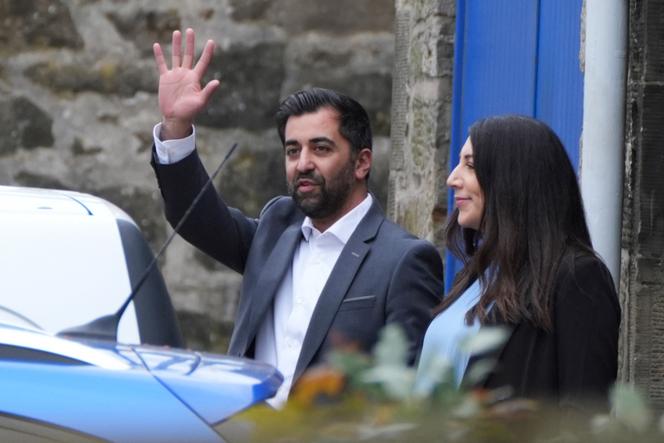


Scottish politics is in turmoil. Humza Yousaf, the first minister of the UK country, announced his resignation on Monday, April 29 from Bute House, the Edinburgh residence of Scotland's leaders. The 39-year-old Glasgow MP has also stepped down as leader of the pro-independence SNP (Scottish National Party). In office for barely a year, having replaced the charismatic Nicola Sturgeon, Yousaf had been running out of options: he was facing two motions of no-confidence − one personal and the other against his government − which he was almost certain to lose.
The departure of this likable man, the first Muslim leader of a devolved European government, has deepened the internal crisis within the SNP caused by the legal troubles of Sturgeon and her husband, Peter Murrell − the latter having just been charged with embezzlement. It could even lead to early Scottish elections, if the nationalist movement fails to find a leader in the coming days capable of mustering a majority at Holyrood, Scotland's regional parliament.
Yousaf has been largely responsible for his own downfall. He brought it about by unilaterally terminating the SNP's 2021 coalition with the Greens on April 25 − perhaps out of fear that the Greens would catch him unawares by giving up before he did. The dispute between the two movements deepened after the first minister publicly scrapped, in mid-April, the highly ambitious target of a 75% reduction by 2030 (over 1999 levels) in Scotland's greenhouse gas emissions.
Green ministers Patrick Harvie and Lorna Slater, who were unceremoniously ousted from the government, have joined the motion of no-confidence brought against Yousaf by the Scottish Conservatives and supported by all the other opposition parties. Yousaf still had one wild card move left: convincing Ash Regan to support him. The former SNP MP had switched to the small Alba party set up by former first minister Alex Salmond, Sturgeon's mentor and now her staunchest rival. But she demanded a price for her support, one that was probably too steep: that the "protection of women" once again be placed at the heart of the Scottish government's priorities. Alba had criticized the SNP for being too supportive of the rights of transgender people.
After ending the coalition with the Greens, Yousaf said on Monday: "My wish was to continue working informally with them. (...) I clearly underestimated the level of hurt and upset I caused [them]." It was a humble acknowledgment of his error in judgment. Questions about the leader's political acumen had already been raised for some years. Although he has been held in high esteem for his eloquent oratory skills and the symbol of integration he has embodied, Yousaf has made one blunder after another. As Sturgeon's justice minister, he notably defended a hate crimes law (which came into force on April 1) that was denounced as a threat to freedom of expression.
You have 44.52% of this article left to read. The rest is for subscribers only.
